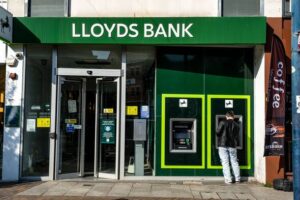
Hopes are fading that the Bank of England will cut interest rates in November amid fears of a new spike in inflation.
Higher energy bills and concerns about the impact of the crisis in the Middle East on oil prices have raised fears inflation could rise from the current figure of 2.2 percent before Christmas.
This would take the figure above the Bank of England’s target measure of 2 percent and could lead to demands for higher pay increases, which could push up the cost of goods and services.
Some banks and building societies have reacted to the situation by withdrawing some cheaper home loan rates and launching more expensive deals.
Rob Elder Bank of England’s agent for Greater London warned that geopolitical and climate disasters could impact wiggle room for further Bank cuts in the coming months.
Speaking at the Mortgage Business Expo 2024, Elder said major weather disasters and geopolitical tensions always threatened to be the shock events that impacted economies.
He warned: “All these things can put up inflation. It looks like we are moving to better times but there is always something around the corner that may change things.“
Mr Elder pointed to the fact that the conflict between Ukraine and Russia was a major factor in inflation in the UK rising in the first place and stressed that with 40 percent of what we consume coming from abroad, we were “always susceptible to what happens across the globe.”
Nicholas Hyett, Investment Manager at Wealth Club, said the impact of the Middle East crisis and concerns that the Chancellor will raise taxes in the Budget later this month create a conundrum for the Bank of England.
He said: “The Bank had been eyeing up further interest rate cuts, but the economy doesn’t look like it’s crying out for more monetary support and with inflation expected to accelerate again into Christmas, rate setters might be thinking it makes sense to sit on their hands a little while longer.”
Bosses at the Bank of England have been giving mixed messages on the path of interest rates. Last week, the governor Andrew Bailey, talked of taking a more “aggressive” and “active” approach to cutting the base rate.
Huw Pill, who sits on the Bank’s nine-member interest rate setting Monetary Policy Committee, said: “While further cuts in Bank rate remain in prospect should the economic and inflation outlook evolve broadly as expected, it will be important to guard against the risk of cutting rates either too far or too fast.”
The official said he feared a return of inflation after the recent cost of living crisis, which depressed the incomes of many households.
“The recent cost of living crisis was a salutary reminder of the dislocation and pain inflation imposes, especially on the less well-off and small and medium-sized enterprises – already vulnerable segments of the economy that may struggle to protect themselves from higher prices,” he said.
“On this basis, price stability should not be seen as the obsession of remote technocrats in Threadneedle Street. Rather price stability is a foundation – you could even argue, the foundation – of a thriving, modern, vigorous and growing UK market economy, which provides opportunities for all: precisely what I would envisage as an ‘economy fit for the future’,” he added.

















